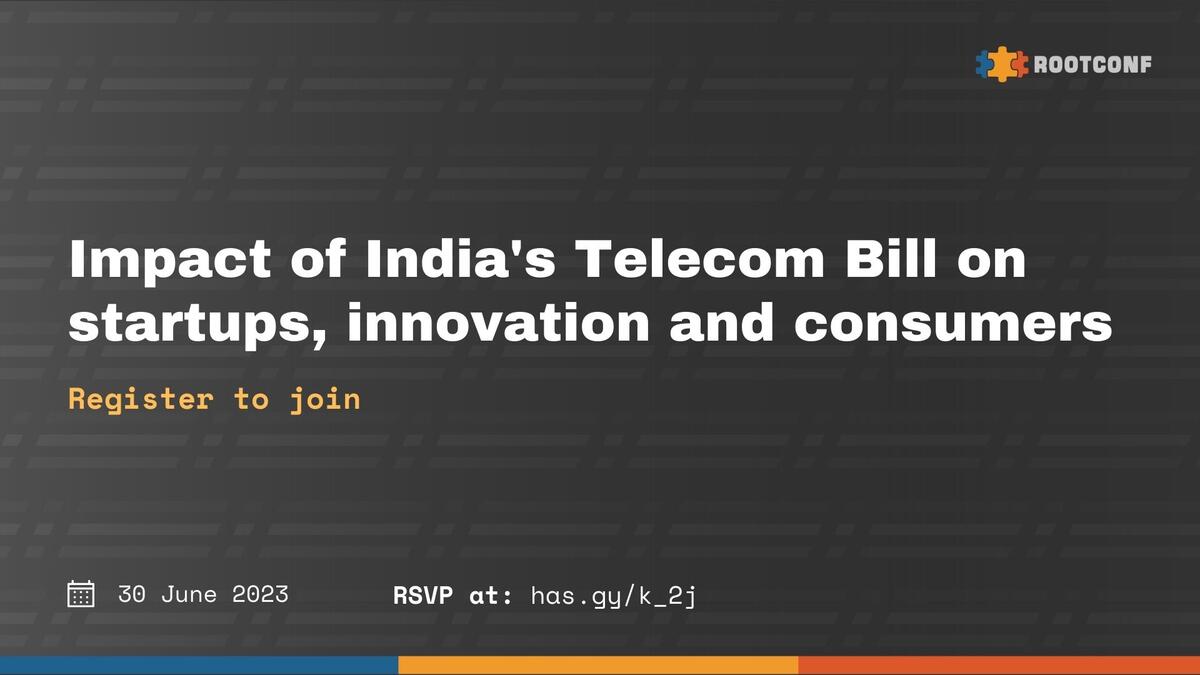
Impact of India's Telecom Bill on startups, innovation and consumers
A series of discussions to increase public participation in upcoming tech policy reform
Jun 2023
26 Mon
27 Tue
28 Wed
29 Thu
30 Fri 05:30 PM – 07:00 PM IST
1 Sat
2 Sun
amol
Submitted Jun 27, 2023
CUTS Comments are available at https://cuts-ccier.org/pdf/comments-on-the-draft-telecom-bill-2022.pdf
Our key suggestions are:
Hosted by
Supported by
Partner
{{ gettext('Login to leave a comment') }}
{{ gettext('Post a comment…') }}{{ errorMsg }}
{{ gettext('No comments posted yet') }}